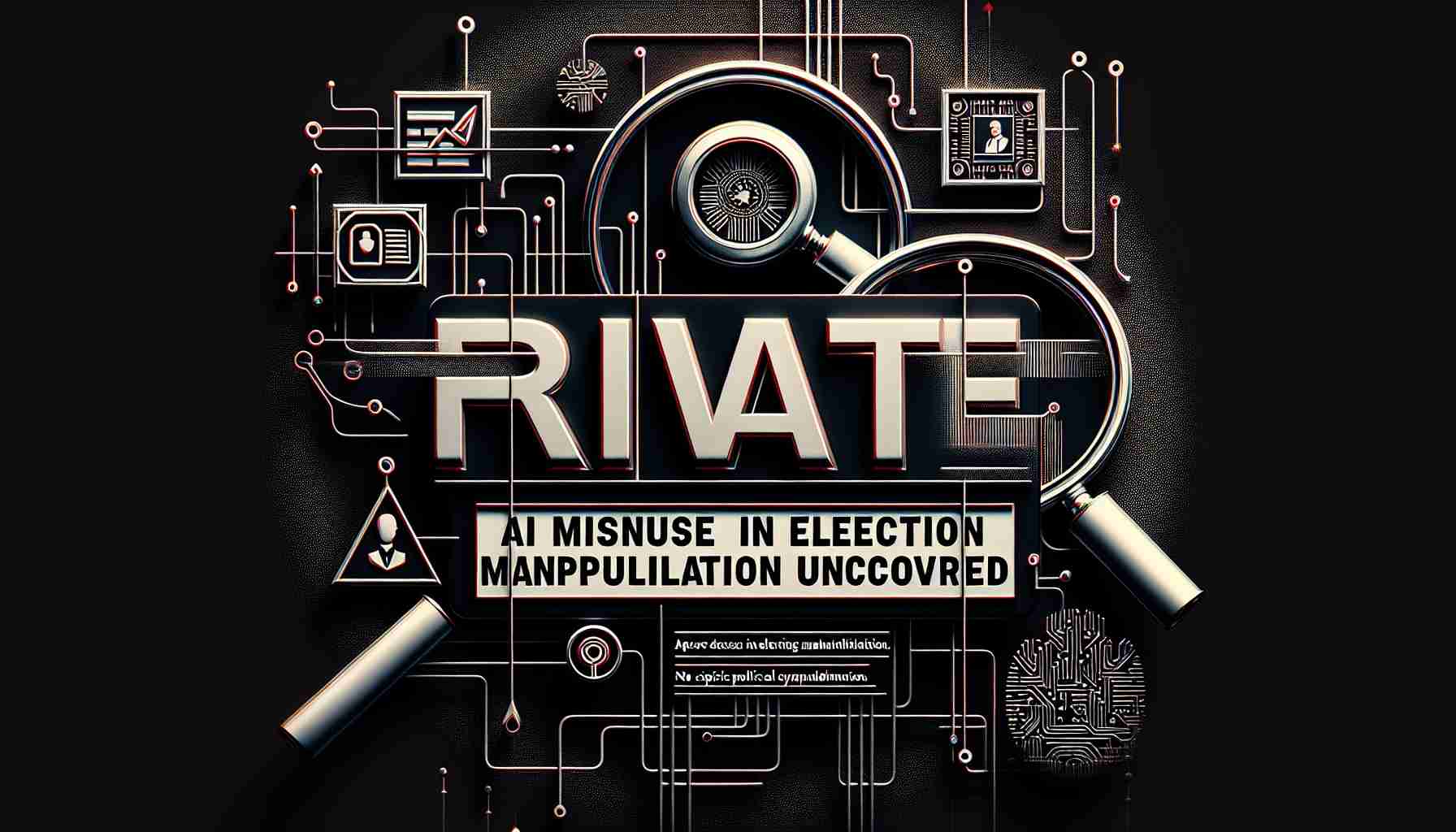In a recent report, OpenAI, the organization behind the popular AI models, unveiled alarming cases of its technologies being exploited by malicious forces to interfere with democratic processes worldwide.
The detailed 54-page document, released midweek, reveals that OpenAI has successfully thwarted over 20 operations and deceptive networks that intended to exploit its AI capabilities. These malicious attempts included generating fabricated website articles and orchestrating social media posts via fraudulent accounts.
The report elaborates on the troubling trend of AI being utilized for election-related activities, which range from basic content creation to more sophisticated strategies designed to engage and manipulate social media dialogues. Although malicious actors are continually adapting and testing the limits of these AI models, OpenAI noted that these attempts have not led to significant advancements in creating new malware or forming large-scale online followings.
Most of the detected disinformation efforts were linked to elections in the United States and Rwanda, with some activity observed in India and across the European Union. OpenAI has emphasized that these operations failed to achieve a notable viral presence or maintain ongoing audiences with the generated content.
The revelations arrive at a critical time, just weeks before the upcoming U.S. presidential election, underscoring the urgent need for vigilance against election-related misinformation.
Tips and Life Hacks to Combat Misinformation in Today’s Digital Landscape
In light of recent reports highlighting the misuse of AI technologies in manipulating democratic processes, it is crucial for individuals to equip themselves with effective strategies to navigate the online information space. Below are some valuable tips, life hacks, and intriguing facts that will help you become a more discerning consumer of online content.
1. Verify Sources Before Sharing: Always confirm the authenticity of the information before you share it on social media. Check whether reputable news outlets have reported on the same story or if fact-checking websites, such as Snopes or FactCheck.org, have analyzed the claims.
2. Use Reverse Image Search: If you come across images that seem suspect or are central to a news story, use reverse image search tools like Google Images or TinEye. This can uncover the original source of the image and reveal whether it has been manipulated or taken out of context.
3. Be Wary of Sensational Headlines: Clickbait titles often misrepresent the content that follows. Take time to read past the headlines and look for credible information within the article itself.
4. Check the Author’s Credentials: When reading articles, consider the author’s background. Are they from a reputable publication? Do they have expertise in the area they are writing about? Knowing the author can lend credibility to the information presented.
5. Engage in Digital Literacy Education: Seek out resources and workshops on digital literacy. Many organizations offer free online courses that teach you how to navigate the internet wisely and assess the validity of the information you encounter.
6. Turn On News Alerts: Set up alerts for trusted news platforms to receive updates on significant events. This will help you access reliable information promptly, reducing the chances of falling for misinformation.
Interesting Fact: Did you know that AI-generated fake news can be detected? Researchers are developing algorithms that aim to identify the hallmarks of AI-generated content, which could significantly improve our defenses against misinformation campaigns.
7. Encourage Civil Discourse: When discussing contentious topics on social media, strive to promote thoughtful and respectful conversations. Avoid immediate reactions to sensational posts and instead encourage others to seek credible sources of information.
8. Follow Fact-Checking Organizations: Make it a habit to follow organizations dedicated to fact-checking across social media. Their constant monitoring of information can help you stay informed about current misinformation trends.
As we approach critical events like elections, being informed and vigilant is more important than ever. Empowering yourself with the right tools and knowledge not only enhances your digital experience but also supports the integrity of democratic processes.
For more insights on AI’s impact and related topics, visit OpenAI.










